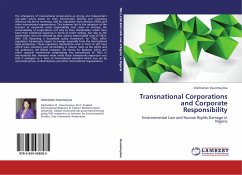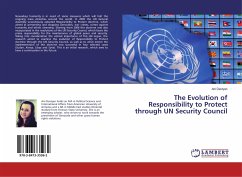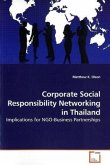The emergence of transnational corporations as strong and independent non-state actors based on their trans-border identity and increasing influence has led to numerous calls for regulation from scholars, NGOs and other international organizations. This however led to the adoption of the concept of corporate social responsibility that seeks to increase the accountability of corporations not only to their shareholders which have been their traditional response in terms of profit making, but also to the stakeholders who are affected by their actions (externalized costs of TNCs). With CSR becoming a household policy framework for TNCs, other regulatory frameworks began to emerge especially from the international legal perspective. These regulatory mechanisms came in form of soft laws which were voluntary and non-binding in nature. Such as the OECD and ILO guidelines, UN Global Compact, UN Norms for Business, ATCA and other regional frameworks emphasizing the personhood of TNCs in international law. However what made these frameworks important was that it emerged as a form of international standard which was set by international law, United Nations and other International Organizations
Bitte wählen Sie Ihr Anliegen aus.
Rechnungen
Retourenschein anfordern
Bestellstatus
Storno








